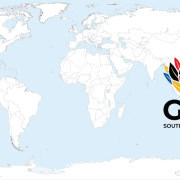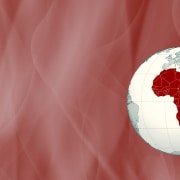Image: Flickr/Ryan Morrison
Just weeks ago we reported on moves by UN member countries to begin the development of a UN tax convention under resolution 78/230. This would shift the responsibility for setting global tax rules from the OECD to the UN, a move which is expected to help to cut down on global tax abuse, illicit financial flows, tax avoidance and evasion, and other harmful tax practices, because the rules would be more transparent and inclusive, and apply to all equally.
Developing countries bear the greatest burden in terms of financial losses related to tax abuse. For South Africa, as with other countries, it is not easy to quantify the amounts lost, but Cathrine Koloane and Oliver Bodhlyera, in their 2022 paper A statistical approach to modeling the underground economy in South Africa, quote a figure of around R250-million per day in lost tax revenue due to tax evasion and avoidance and illicit trade.
“A UN tax convention would require global tax rules to be decided democratically and transparently at the UN, where all countries can be heard on global tax rules that affect their citizens,” said the Tax Justice Network (TJN) at the time.
We also reported that among the countries that vetoed the initial proposal in November 2023 – and lost to the majority who voted in favour of it – were the US, UK, and all EU member countries. Soon after, in August 2024, 110 UN member states voted to adopt the terms of reference (ToRs) for the new UN tax convention. Eight countries, again including the US and UK, voted against adopting the ToRs, while the 27 EU member countries moved from outright veto to abstention – which could be viewed as progress of a sort.
And now we see why the UK and US and their ilk are so against tax reform, with the release of TJN’s Corporate Tax Haven Index (CTHI) 2024 – this is the third edition, following 2021 and 2019.
Tax abuse enablers
Tax havens help to erode countries’ tax revenue by undermining their ability to gather tax from multinationals. They do this by encouraging clients to register operations in their jurisdictions, offering these foreign investors – both individuals and businesses – attractive packages with low or no taxation rates.
The UK and its overseas territories and dependencies continue to be the world’s greatest facilitators of cross-border tax abuse, comprising six of the top 15. The British Virgin Islands, the Cayman Islands, and Bermuda occupy the top three positions respectively and can clearly be seen as “the biggest threat to countries’ public purses”, says TJN.
Countries are estimated to lose $84-billion in corporate tax a year due to multinational corporations using the UK and its British tax havens to underpay tax, TJN adds. “This yearly loss goes up to $169-billion when including losses arising from wealthy individuals using the UK and its tax havens to underpay tax.”
Combined, the UK’s network of tax havens is responsible for 33% of corporate tax abuse risks – up from 31% in 2021. Little wonder, then, that the UK would prefer to keep the profoundly unfair existing global tax system in place.
The Virgin Islands achieved a CTHI value of 3 061 – the highest of all (see below for more details on the scoring methodology). The Caymans scored 2 891 and Bermuda scored 2 478, indicating their roles as colossal enablers of global corporate tax abuse. In comparison, South Africa’s CTHI value for 2024 is 175.
Countries in the EU, which hosts the OECD, are responsible for a further third of corporate tax abuse risks, but as noted previously, they have finally abandoned their opposition to the proposed UN tax convention.
The Republic of Ireland broke into the top 10 for the first time, at number 9 and with a CTHI value of 1 622. “Ireland’s rise was largely due to the lack of change in its anti-tax abuse laws, causing it to fall behind other countries on the index,” says TJN. The country has some of the worst scores on the index’s indicators among EU countries, added the organisation.
African countries, meanwhile, are responsible for 4% of corporate tax abuse risks, while Latin American countries account for 3%.
“While lower income countries lose less amounts of tax to corporate tax abuse than higher income countries, lower income countries’ tax losses represent a larger share of their governments’ incomes. Lower income countries tax losses are equivalent to about half their public health budgets, whereas higher income countries tax losses are equivalent to 9% of their public health budgets.”
Africa’s biggest offender is Mauritius which came in at 15 on the CTHI. This country sees a huge 58% of corporate financial activity entering and exiting African countries that are ranked on the index, up from 56% since the second CTHI edition in 2021.
Methodology
The CTHI value indicates the “actual risk of the contribution of jurisdictions to (i) the global race to the bottom in corporate taxation, (ii) the erosion of corporate income taxes globally, and (iii) constraining the tax policy space in other jurisdictions”.
It is calculated on two elements – the haven score and the global scale weight.
The former is a qualitative measure of the facilities that tax havens provide to multinational corporations. It is measured on a scale of 0-100, with 0 offering the least opportunity for corporate tax abuse and 100 offering the most room for such abuse. There are 18 indicators, which are grouped into five indicator groups – Lowest available corporate income tax rate, Loopholes and exemptions, Transparency gaps, Anti-abuse gaps, and Tax treaty aggressiveness. These cover the ways tax havens enable corporate tax abuse.
“The three British tax havens ranking at the top of the Corporate Tax Haven Index – the British Virgin Islands, Cayman, and Bermuda – earned the worst possible scores (100 out of 100) across all 18 indicators used by the index to evaluate countries’ laws.”
In South Africa, the weakest link was Transparency gaps – the country scored 100 on three of the four indicators in this group. This was followed by Anti-abuse gaps, where South Africa scored 100 in two of the five indicators. For the remaining 10 indicators, it came in below the global average and achieved a passable haven score of 47 out of 70 countries assessed.
The global scale weight is quantitative and reflects the activity of multinational corporations in each jurisdiction. It is measured by looking at how much of all the investments multinational corporations made across borders – or foreign direct investment – entered or exited the jurisdiction.
Just 0.5% of the financial activity conducted by multinational corporations around the world in 2024 entered or exited South Africa.
The haven score and the global scale weight are then mathematically combined to calculate the corporate tax haven share of a jurisdiction and its overall contribution to the global problem of corporate tax abuse.







